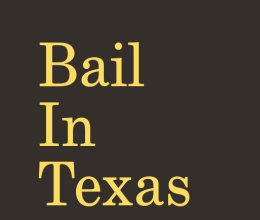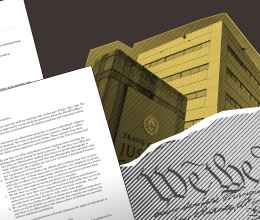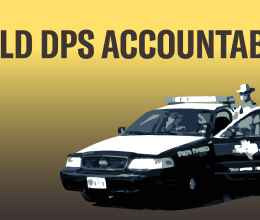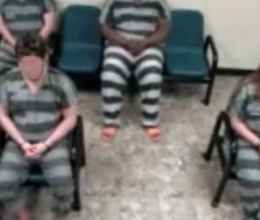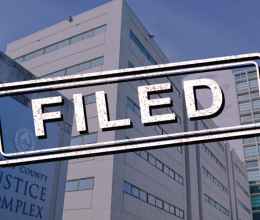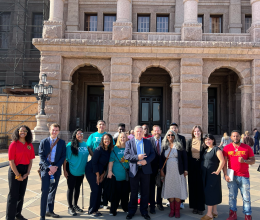
AUSTIN, Texas — During the 2016 Great Texas Warrant Roundup, low-income Texans may be unlawfully committed to jail for overdue fines. In order to decrease that risk, a coalitions of organizations — Texas Appleseed, Texas Fair Defense Project, University of Texas School of Law Civil Rights Clinic and ACLU of Texas — want individuals who may be arrested during the Roundup to have the following information about their legal rights and the options available to them.
Background on Warrant Roundup
Law enforcement agencies and courts from more than 300 cities and counties across Texas are participating in the 2016 Great Texas Warrant Roundup beginning Saturday, March 5, 2016, with a handful announcing earlier start dates. The goal of the Roundup is to collect payment of overdue fines from the hundreds of thousands of Texans who have warrants for unpaid traffic tickets and fines in Class C misdemeanor cases in justice and municipal courts.
Before the Roundup, some cities and counties have a one- or two-week period in late February for settling overdue tickets, called an “amnesty” period. Some courts will eliminate fees if a person pays the underlying fines or will settle the entire debt if a person pays a portion of what is owed. Individuals can call the court that imposed the fine to ask about their amnesty period.
Know Your Rights
People with outstanding court debts should be aware of their options and rights under state law if they cannot afford to pay the amount owed. It is not legal for a judge to jail an individual simply because he or she cannot pay fines or fees. The law requires a judge to ask whether a person has the ability to pay their debt before committing that person to jail. If a person cannot pay, he or she cannot be required to “lay out” the fines or fees in jail (meaning, pay down the fines through a jail stay).
If an individual is arrested for unpaid fines and cannot pay the total amount owed, that person should tell the judge and explain the reasons why. The person may ask the judge for one or more alternatives to immediate payment:
- A lower fine tailored to one’s income. Judges can reduce the amount owed, including fines, fees and court costs based on income, resources and family obligations. This is also called a “partial waiver.”
- A payment plan, allowing the person to pay in installments over a period of months. Judges have the authority to order monthly payments in any amount, as small as a person can afford each month.
- Community service, to be performed at locations authorized by the court. An individual will get at least $50 of credit towards their fines for every eight hours work, and judges may order credit at a higher rate.
- A combination of these options. A person can discharge part of the debt through payment plans or community service and ask for a waiver of whatever is left over.
Any person who does not have enough income to pay the court debts in full — including people who receive government assistance, disability or SNAP benefits, the unemployed and those with minimum-wage or low-wage jobs — can ask for these options. It is important to fully explain the person’s limited income to the judge.
Individuals who were under 18 when they were fined have even more legal rights and options. The court must make special findings before issuing a warrant in such cases and can also order individuals to complete tutoring instead of paying fines, if their offenses occurred on school grounds. Additionally, individuals should not be arrested for any unpaid fines from past convictions for Failure to Attend School (i.e., truancy) since the change in law last year.
Most courts have written forms that people can use to apply for a payment plan or to work off the debts through community service. People can request these alternatives using these forms or by asking to talk directly with a judge. People should present some proof of their household income and their monthly payment obligations to show that they have limited means to pay.
